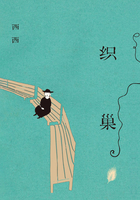"Remember, papa," said she in a very low voice, "what he said one day-aboutgovernments, you know." She was unwilling to make any clearerallusion to the conversation they had held on the mode of governingwork-people--by giving men intelligence enough to rule themselves, orby a wise despotism on the part of the master--for she saw that Higginshad caught Mr. Thornton s name, if not the whole of the speech: indeed,he began to speak of him.
"Thornton! He"s the chap as wrote off at once for these Irishers; and ledto th" riot that ruined th" strike. Even Hamper wi" all his bullying, wouldha" waited a while--but it"s a word and a blow wi" Thornton. And, now,when th" Union would ha" thanked him for following up th" chase afterBoucher, and them chaps as went right again our commands, it"sThornton who steps forrard and coolly says that, as th" strike"s at an end,he, as party injured, doesn"t want to press the charge again the rioters. Ithought he"d had more pluck. I thought he"d ha" carried his point, andhad his revenge in an open way; but says he (one in court telled me hisvery words) "they are well known; they will find the natural punishmentof their conduct, in the difficulty they will meet wi" in gettingemployment. That will be severe enough." I only wish they"d cotchedBoucher, and had him up before Hamper. I see th" oud tiger setting onhim! would he ha" let him off? Not he!"
"Mr. Thornton was right," said Margaret. You are angry against Boucher,Nicholas; or else you would be the first to see, that where the naturalpunishment would be severe enough for the offence, any fartherpunishment would be something like revenge.
"My daughter is no great friend of Mr. Thornton"s," said Mr. Hale,smiling at Margaret; while she, as red as any carnation, began to workwith double diligence, "but I believe what she says is the truth. I likehim for it."
"Well, sir, this strike has been a weary piece o" business to me; and yo"llnot wonder if I"m a bit put out wi" seeing it fail, just for a few men whowould na suffer in silence, and hou"d out, brave and firm."
"You forget!" said Margaret. "I don"t know much of Boucher; but theonly time I saw him it was not his own sufferings he spoke of, but thoseof his sick wife--his little children."
"True! but he were not made of iron himsel". He"d ha" cried out for hisown sorrows, next. He were not one to bear."
"How came he into the Union?" asked Margaret innocently. "You don"tseem to have much respect for him; nor gained much good from havinghim in."
Higgins"s brow clouded. He was silent for a minute or two.Then he said,shortly enough:
"It"s not for me to speak o" th" Union. What they does, they does. Themthat is of a trade mun hang together; and if they"re not willing to taketheir chance along wi" th" rest, th" Union has ways and means."
Mr. Hale saw that Higgins was vexed at the turn the conversation hadtaken, and was silent. Not so Margaret, though she saw Higgins"sfeeling as clearly as he did. By instinct she felt, that if he could but bebrought to express himself in plain words, something clear would begained on which to argue for the right and the just.
"And what are the Union"s ways and means?"
He looked up at her, as if on" the point of dogged resistance to her wishfor information. But her calm face, fixed on his, patient and trustful,compelled him to answer.
"Well! If a man doesn"t belong to th" Union, them as works next loomshas orders not to speak to him--if he"s sorry or ill it"s a" the same; he"sout o" bounds; he"s none o" us; he comes among us, he works among us,but he"s none o" us. I" some places them"s fined who speaks to him. Yo"
try that, miss; try living a year or two among them as looks away if yo"
look at "em; try working within two yards o" crowds o" men, who, yo"
know, have a grinding grudge at yo" in their hearts--to whom if yo" sayyo"r glad, not an eye brightens, nor a lip moves,--to whom if yourheart"s heavy, yo" can never say nought, because they"ll ne"er take noticeon your sighs or sad looks (and a man "s no man who"ll groan out loud"bout folk asking him what "s the matter?)--just yo" try that, miss--tenhours for three hundred days, and yo"ll know a bit what th" Union is."
"Why!" said Margaret, "what tyranny this is! Nay, Higgins, I don"t careone straw for your anger. I know you can"t be angry with me if youwould, and I must tell you the truth: that I never read, in all the history Ihave read, of a more slow, lingering torture than this. And you belongto the Union! And you talk of the tyranny of the masters!"
"Nay," said Higgins, "yo" may say what yo" like! The dead stand betweenyo and every angry word o" mine. D" ye think I forget who"s lying there,and how hoo loved yo"? And it"s th" masters as has made us sin, if th"
Union is a sin. Not this generation maybe, but their fathers. Theirfathers ground our fathers to the very dust; ground us to powder!
Parson! I reckon, I"ve heerd my mother read out a text, "The fathershave eaten sour grapes and th" children"s teeth are set on edge." It"s sowi" them. In those days of sore oppression th" Unions began; it were anecessity. It"s a necessity now, according to me. It"s a withstanding ofinjustice, past, present, or to come. It may be like war; along wi" it comecrimes; but I think it were a greater crime to let it alone. Our onlychance is binding men together in one common interest; and if some arecowards and some are fools, they mun come along and join the greatmarch, whose only strength is in numbers."
"Oh!" said Mr. Hale, sighing, "your Union in itself would be beautiful,glorious,--it would be Christianity itself--if it were but for an end whichaffected the good of all, instead of that of merely one class as opposedto another."
"I reckon it"s time for me to be going, sir," said Higgins, as the clockstruck ten.
"Home?" said Margaret very softly. He understood her, and took heroffered hand. "Home, miss. Yo" may trust me, tho" I am one o" th" Union."
"I do trust you most thoroughly, Nicholas."
"Stay!" said Mr. Hale, hurrying to the book-shelves. "Mr. Higgins! I"msure you"ll join us in family prayer?"
Higgins looked at Margaret, doubtfully. Hey grave sweet eyes met his;there was no compulsion, only deep interest in them. He did not speak,but he kept his place.
Margaret the Churchwoman, her father the Dissenter, Higgins theInfidel, knelt down together. It did them no harm.















